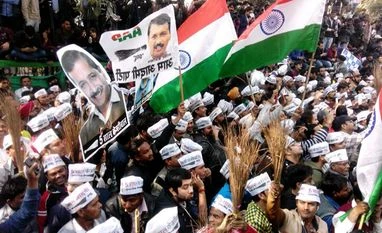“When we talk about priorities, there are two different things, the level of significance and of urgency. We have already spelt out the significant ones in our manifesto and they continue to be: Lok Pal, Swaraj Bill, water and electricity issues, health and education, and women’s security. In terms of urgency, it would be fair to leave it on the government, once it settles and makes a timetable,” party ideologue Yogendra Yadav told Business Standard.
The Swaraj Bill seeks to promote participative decision-making by dividing the 272 municipal wards into 10-15 units each. These are to meet once a month to discuss and decide on local fund allocation and monitor the functioning of public institutions in the area such as schools, hospitals, etc.
More From This Section
Two issues the party raised through its campaign were related to water and electricity. It also issued position papers on these. The AAP vows to provide 20,000 litres of free water a month to all households, including group housing societies. It also plans to cut electricity rates by half, through subsidies, till the Comptroller and Auditor General’s audit of the power companies is complete.
“Our principal plank is not that electricity is expensive and so, to reduce its price. It is that electricity pricing is fraudulent and this needs to be audited and prices calibrated accordingly. Meanwhile, we are offering a subsidy,” Yadav had said last week.
The 70-point manifesto also promised free Wi-Fi across Delhi, 1-1.5 million CCTV cameras for the safety of women, constructing 200,000 toilets, 500 government schools, 20 degree colleges and setting up 30,000 additional beds in government hospitals. Also, to create 800,000 jobs, fill the 55,000 vacancies in the Delhi government and make Delhi a “start-up” hub by enhancing the ease of doing business. For traders, the party has also vowed the country’s lowest value-added tax.
In 2013, the AAP, with 28 seats, had formed a government in Delhi with the outside support of the Congress party, which had eight seats in the 70-member Assembly. When its Bill on the Lok Pal had failed in the Assembly, the party had quit and called for immediate elections. Now, with almost all the seats in its kitty, the party will at least be able to introduce and pass the Bill, then sending it for the President’s approval, as the area in question is in the Constitution’s concurrent list of subjects.
AAP chief Arvind Kejriwal’s other pet project, the Swaraj Bill, was on top of the agenda. “The AAP was unable to realise its dream of swaraj due to the obstructive tactics of the two national parties. Hence, our appeal to you this time is vote for the AAP to empower yourself for a better future,” their manifesto stated.
In 2013, the AAP government had reduced electricity rates by half for households consuming up to 400 units a month. There is to be a similar benefit now. Its government in the city had announced these benefits on water and power immediately after it assumed charge in December 2013 and had estimated the total impact at Rs 200 crore for three months. Of this, it had said, Rs 139 crore would be borne by the power companies against the amount they owed the city government.
)